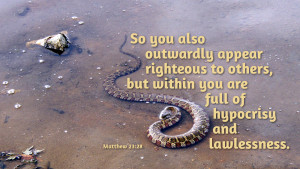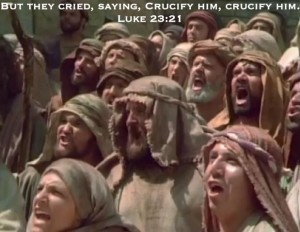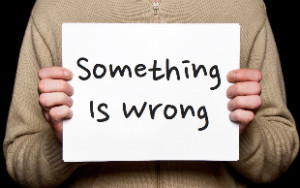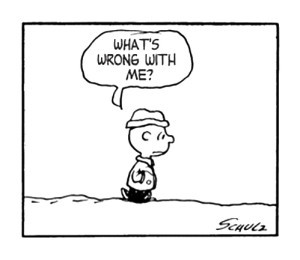Lori Stanley Roeleveld's Blog, page 54
August 2, 2015
Does Your Life Really Hug the Curves?
 A few years back, my daughter and her tech-savvy friends ordered me a new laptop. It was a gaming laptop with amazing graphics, an extended screen, and powerful drivers designed to enhance the gaming/video/music experience.
A few years back, my daughter and her tech-savvy friends ordered me a new laptop. It was a gaming laptop with amazing graphics, an extended screen, and powerful drivers designed to enhance the gaming/video/music experience.
I used it primarily to type Word docs.
An accomplished musician friend once picked up my twelve-string acoustic and played a stage-worthy rendition of several popular cover songs. His picking action and chord transitions were flawless. The instrument took on a life of its own.
I used it primarily to play D, A, G based choruses.
My dad owns a fully equipped high performance Ford Crown Victoria civilian version of the Police Interceptor. Until June, he used it for high speed driving along narrow, windy backwoods roads to respond to fires, accidents, and medical emergencies.
If I borrowed it, I’d drive it two miles to the grocery store and keep to five miles above the speed limit.
This is how we approach our daily lives.
God designed us to be high-performance custom-designed vehicles of endless creativity and high-definition communicators of His infinite truth, grace, and love. But, we hunt and peck at the keyboard of our lives like chimps who find an iPhone in the jungle.
“But, as it is written, “What no eye has seen, nor ear heard, nor the heart of man imagined, what God has prepared for those who love him” 1 Corinthians 2:9 (ESV)
What if one day this week you woke up, hit your knees, and said, “Lord, I know that because Jesus’ Spirit resides within me, I am capable of so much more. What, say, today, we take this baby out for a spin and you show me exactly what a soul surrendered to you can do?”
Sound like fun?
Yeah, to me, too.
Let me know how it turns out on your end!
Does Your Life Really Hug the Curves? Isn’t it time you found out? http://t.co/g7CAjuy0YD #amwriting #surrenderall #jesusislord
— Lori Roeleveld (@lorisroeleveld) August 3, 2015
July 30, 2015
The Christian You Don’t Know
 She sees me several times a week. I know her views because she makes them known. I am myself with her.
She sees me several times a week. I know her views because she makes them known. I am myself with her.
Recently she confessed she used to hate Christians but she’s rethinking that. “I think all I knew before were headline Christians, movie Christians, and what my friends say about Christians. You’re not like them. I know we disagree but I don’t feel like you hate me. I’m starting to think I might have been wrong about Jesus people.”
Thank God. I thought. Thank you God for showing up and showing through all the cracks in my armor.
It made me wonder what people think we’re like on our knees. I wonder if they imagine a different prayer life than the one I have.
When I speak with God in the morning, I’m not asking Him to destroy the gay agenda or to wage war against those who made gay  marriage legal. When I pray in the morning, I’m asking for strength to meet the challenges of the day, for a filling of the Holy Spirit, and for protection for my loved ones.
marriage legal. When I pray in the morning, I’m asking for strength to meet the challenges of the day, for a filling of the Holy Spirit, and for protection for my loved ones.
With my next prayerful breath, I’m not pleading for Him to boost the polls for the political candidate of my choice or to strike Obama with lightning. I’m pleading for wisdom to do my job and to interact with my loved ones. I’m requesting enough Christ-likeness not to hurt someone or screw up someone else’s life before lunch.
As I drive to work, I listen to His Word on CD and then to the headlines on talk radio. When I pray, I’m not calling fire and brimstone down on our enemies or asking God to oppose the heathen masses. I’m requesting the power to obey what I’ve heard from the Scripture passage and to not let what I heard from the headlines discourage me to the point of fear or depression. I’m mulling over, with Him, what His Word means to me, now, today.
By lunch, I thank Him for my food but also for patient coworkers. I’m not praying for them to vote the way I vote, I’m praying for healing for their husband’s cancer, a job for their son-in-law, reconciliation with their aging mother, and better ears with which to hear their heart needs. I ask for self-control to make healthy choices and healing from the morning’s stress.
 Through the afternoon, my prayers are sentence brief. Forgive me for losing my cool. Please don’t let my car overheat in this traffic. Thank you for the good outcome with that family. Forgive me for that mean thought about that woman. What should I blog about next week? Heal my husband. Watch over my son. Thank you for my daughter. How will we pay that bill?
Through the afternoon, my prayers are sentence brief. Forgive me for losing my cool. Please don’t let my car overheat in this traffic. Thank you for the good outcome with that family. Forgive me for that mean thought about that woman. What should I blog about next week? Heal my husband. Watch over my son. Thank you for my daughter. How will we pay that bill?
On the drive home, the issues scream out from the radio news and the callers. Then, I do pray about what’s going on in our culture. I cry out for wisdom. I ask God for patience with us as a people. I pray for the church to have strength and integrity, for creativity and imagination, for courage and compassion, for the Spirit’s power to speak truth and demonstrate love with people who differ from us. No fire. No brimstone. Barely the energy for anger. Lots of pleading. Lots of silent prayers where words fail.
During television and time on social media, I’m asking for strength to resist temptation. Thanking God for joy and laughter. Writing new stories in my head and asking for creative energy. Praying for grandchildren yet to be born that they will know God
from the cradle and grow up loving Him in a culture at odds with Him. Admiring other people’s artistic gifts.
When I lay me down to sleep, there are more prayers of confession, more gratitude, and more requests for those I love, family, friends, church, my town. No holy war prayers. No culture war intercessions. No hatred for enemies. I intercede for people near and far who don’t follow Jesus yet – individuals and people groups – for God to make Himself known to them. I thank God for His mercy and grace.
This is a day in my prayer life and I know so many other believers whose prayers are the same. We love the people in our lives, in our neighborhoods, in our country, across the world. We love people with whom we differ. We struggle with the great questions facing others. We don’t have it together – we need Jesus. Day-by-day. Moment-by-moment.
We are not the worst of us or the loudest of us or the caricatures of us or portrayals of us by those who misunderstand us. We are sinners saved by grace. Aware of our sinful bent. Grateful for a forgiving God. On fire for Him in a way that wants to include others in the joy of Him.
What did you think we were?
The Christian You Don’t Know – What you think we’re like – what we’re really like. http://t.co/wWrdo3t53b #amwriting #Christianstereotypes
— Lori Roeleveld (@lorisroeleveld) July 31, 2015
July 27, 2015
Some People Don’t Count
 You can tell a lot about a culture and the powers who rule it by the people it doesn’t count.
You can tell a lot about a culture and the powers who rule it by the people it doesn’t count.
When Jesus fed the 5000, the gospel writer notes that 5000 is the number of men. Matthew ends his account with this verse: “The number of those who ate was about five thousand men, besides women and children.” Matthew 14:21 (NIV)
“Besides women and children . . .” says much about the culture of ancient Israel under Roman rule. Women and children didn’t count – except with Jesus.
The ancient Israelites aren’t alone.
Some cultures marginalize ethnic groups while in others, outcast status has to do with economics, disability, or age. For centuries, India maintained a caste of people known as “untouchables” and in several African nations, people with albinism are severely persecuted. Prior to the civil war, African-Americans would not have been counted in our country – not the way white Americans counted. It wasn’t until the 1920’s that we allowed women to vote and the sixties before we granted African-Americans the same right. Every culture has a hard time hearing certain voices.
A society proudly displays what it values while hiding, sidelining, or silencing what it considers embarrassing or insignificant. So, in taking stock of any people at any given time, we must listen to the prevailing voices but also ask what voices are not being heard, either because they’re forced or shamed into silence or because they’re shouted down when they do speak.
In today’s America, the unborn do not count.
Oh, their numbers are quoted but they’re so staggering, those of us who survived the womb can’t fully appreciate them as humans who have been forcibly silenced. How can the mind imagine 57, 000,000 individual souls extinguished before their first breath?
We, as a culture, have accepted the extermination of millions of unborn souls. World-wide, even more. We have decided to extend the fewest protections to the most vulnerable in our midst. As a culture, we’re embarrassed by our mistakes so we destroy them before they can testify against us.
God promises to demand an accounting for the lifeblood of every person. If it’s counter-cultural to value life, we live in a culture of death.
We also don’t count the vulnerable women and girls who have been bullied, pressured, coerced, or duped into choosing abortions. Abusive partners who threaten “or else.” Over-controlling parents who insist on covering. Pimps who force the choice. Even well-intentioned individuals who promise no consequences but ignore the potential for grief, regret, or complications. That’s ugly but it’s the truth.
Our culture sacrifices the whole truth in order to promote a specific agenda. If it’s counter-cultural to value truth, we live in a culture of deception.
People who contradict the party of the day do not count in our culture.
We’ve decided that as we celebrate individuals who embrace their true calling as LGBTQ, we’ll disregard the experiences of individuals who tell different stories. God’s love is great enough to love all but our society’s adoration is not. We won’t listen when someone tells us they’ve changed from LGBTQ to straight. We won’t pay attention when someone says they regret their gender reassignment surgery or that they eventually reconciled their feelings of being in the wrong gender. We certainly won’t listen to the spouses left with shattered dreams while the world throws a party for the ones who discovered their true selves. That would be complicated, messy, and inconvenient.
The Biblical writers prophesied a day when people would seek to have their ears tickled, when people wouldn’t tolerate teachers who killed their buzz. If it’s counter-cultural to consider consequences and the fallout of individual choices on the greater community, we live in a culture of self.
What then will we say to a God who calls us to die to self?
We do not count those our culture says are boring.
Our culture is bored with commitment, sacrifice, steady jobs, quiet marriages, Sunday worship, healthy family routines, sobriety, responsibility, and looking out for others. It’s not sexy. It doesn’t sell, headline, or provoke conversation. If anyone follows this course, we scoff, we mock, we condescend.
We are a woeful culture for Isaiah warned, “Woe to those who call evil good and good evil, who put darkness for light and light for darkness, who put bitter for sweet and sweet for bitter! Woe to those who are wise in their own eyes, and shrewd in their own sight!” (Isaiah 5:20-21 ESV)
Some people don’t count. According to our culture, that is.
With God, we each count and we will each be called to account. We won’t be able to hide in the crowd or blame the masses or point fingers at our culture because what is true about God is clear to all, He makes it known. We will be without excuse.
It’s up to us to make our lives count now, for Him. Even in the face of a culture that counts us out. If God counts us, no one can discount us.
Our voice matters – even when no one else is listening, because He always is.
Who else doesn’t count in our society? Whose voice is missing from the conversation?
Some People Don’t Count – are you one? http://t.co/viBPTU7GQU #amwriting #prolife
— Lori Roeleveld (@lorisroeleveld) July 28, 2015
July 23, 2015
Christianity Will Not Save You
 God told Hosea to marry a whore, so right out of the gate, you know you’re not dealing with an ordinary God.
God told Hosea to marry a whore, so right out of the gate, you know you’re not dealing with an ordinary God.
Jehovah is no God we’d create. We don’t have it in us to fashion One so complex and yet nuanced; so dramatic, yet subtle; so just, yet merciful; so holy, yet love; so endlessly creative, beautiful, inventive, and strong.
The gods humanity makes are one-dimensional, ham-handed and either distant or faulted. They’re crudely drawn and given bumbling monikers like Sun God, God of Thunder, Zeus, Gaia, or more modern versions named after dead men. We scaffold them, so they will not fall, with religious systems of rituals and rules that followers must carefully observe to avoid disfavor.
They demand tributes. They accept bribes. They are mute or dead or conjured through spells. The individual lives of humans are meaningless to the gods of our creation. They bless peoples, nations, and sects. They like large numbers, mobs, and armies. They are impressed by grand gestures like suicide bombs and slain enemies.
God, the true God, knows your name.
He knew Hosea. He knew the whore the prophet married. Gomer. He named their children. He knew the story He planned their lives to tell and it was like no other. The thread of their plotline was different than Gideon’s that varied from Rebekah and Isaac’s that was unlike Hannah’s.
But we’re foolish, we Jesus followers. Sometimes we covet other gods who are no gods. We like the checklists in their systems. We envy the promise of their rituals. We fear the numbers in their armies. So, we create a phantom faith that has the appearance of following Jesus but really it’s a system that goes by a name like any other false god called the Christian religion.
It looks like holiness, appropriates Jesus’ name, and brilliantly counterfeits the reality of God but it cannot save us.
It’s become a cliche but it’s a worthwhile truth that those who follow Jesus do not participate in a religion, we engage in a relationship with the living God. If you’re practicing a religion, return to God’s Word and seek Jesus.
God, the true God, gave us the rules of holiness to school us in our unrighteousness. That was their purpose. He knew they wouldn’t save us but He knew we wouldn’t seek salvation if we thought we were fine so He created a perfect mirror called, “The Law.” His intent was not to spiral us into endless self-reflection but to make us hungry for a beauty and perfection we can only attain in Jesus.
For too long, I fell prey to the phantom faith. I succumbed to an evangelical angst that left me skittish, like a soldier hiking miles through unmapped minefields. As soon as I nailed the big rules, someone showed me the finer points on which I failed. And then, when I made progress on those, I came to see that my inner being can devise sins not specifically listed. I was always blowing up.
 This became an endless cycle of pursuit and despair until Jesus pried my fingers loose from the phantom faith, the false following, the Christianity that isn’t about Christ, and He set me free.
This became an endless cycle of pursuit and despair until Jesus pried my fingers loose from the phantom faith, the false following, the Christianity that isn’t about Christ, and He set me free.
All the religions we create are prisons, pathways that lead in endless labyrinths until we drown in our own reflections. They do not lead to glory.
If Hosea and Gomer showed up at some churches today and told the story of how God brought them together and how Hosea always goes after Gomer because God has a story to tell with their lives, they’d be handed a brochure for a marriage workshop weekend and told to sit quietly until they work out their issues.
I’m not saying I’d grab Hosea’s hand and show him to the pulpit to preach but I’d like to think I’d listen to his story, pray, ask for discernment, and open God’s Word together to seek direction on how best to make his message known.
We like our gods to fit into neat boxes but the message, God’s message as told in His Word isn’t a tidy thing. It  has an order, yes, but there is a wildness to it, like the wooly prophets crying out in the wilderness, shunned by Pharisees, screaming into the wind.
has an order, yes, but there is a wildness to it, like the wooly prophets crying out in the wilderness, shunned by Pharisees, screaming into the wind.
God’s story is so vast, so great, that He winds a plotline into each of our single lives and weaves us like thread into His great story – those who follow Jesus, that is. He’s not like any God we’d create. He’s not all that enthralled with numbers. He commands us to love our enemies. He poured His system, His law, His prophets, His Word into His Son, Jesus and said that we should follow Him.
Yes, we do this from inside communities called churches. Yes, we are called Christians. Yes, we are called to obey His Word as revealed in Scripture. But we must beware the phantom faith of thinking we are saved through attendance, checklists, or prescribed pathways. There is only One Way, Jesus.
A time is coming when the counterfeit will look remarkably like the real. We must train ourselves now, by studying God’s Word and by knowing His Son, in truth. Feasting on His Word, now, while it may be found will train our soul’s palate to distinguish between Christ and the phantom faith.
Our God is not like any we would create. He tells His story through prophets and whores. He rides on the clouds and cooks fish on the seashore. He weeps. He dies for sinners. He rises from death and lives forevermore.
Reject all created gods. There is One who revealed Himself to those He Created, more magnificent than our imaginations could devise. Serve Him alone, Jesus, and taste life, truth, freedom, and light.
Christianity Will Not Save You http://t.co/x1tEtMFQC6 #falseteaching #Phariseeism #OnlyJesus #amwriting #Hosea
— Lori Roeleveld (@lorisroeleveld) July 23, 2015
July 21, 2015
Atticus Finch Was Never Going to Save Us
 Atticus Finch is a complex and deeply flawed character.
Atticus Finch is a complex and deeply flawed character.
Countless reviewers reached this conclusion upon the release of Harper Lee’s prequel to To Kill a Mockingbird. Mockingbird presented an “idealized” Atticus but Lee’s first manuscript reveals him to have uncomfortable faults. So, there is debate.
Atticus is a great character for these times because we’re obsessed with judging each other’s lives, especially anyone who rises to “hero” status. This is a complicated task in an age where public figures don’t keep their secrets for long and leave their followers to sort the exemplary from the horrific.
It’s not easy, is it? Weighing a person’s life.
Our lives groan with conflict. Our world is rife with complex and deeply flawed characters. Comics who make us laugh but who cannot survive this world without shooting up or anesthetizing themselves with alcohol or sex. War heroes who shrink back down to size off the battlefield. Politicians who glitter in the limelight but fade when the applause dies. Pastors who preach fire and light on Sunday but commit adultery in the shadows on Thursday. Loved ones who show one face to the world and another at home.
It’s not easy, weighing a person’s life, but that’s because we aren’t designed to do the weighing. It’s a task way above our pay grade.
It’s the day of disillusion but I can’t help but believe this is somehow good.
Illusions are deceptive, false notions. They are the work of darkness no matter how lovely. To be disillusioned is to be free of  deception. It’s gotten a bad rap only because we’re so in love with lies this side of glory. We think we need them to survive but we don’t.
deception. It’s gotten a bad rap only because we’re so in love with lies this side of glory. We think we need them to survive but we don’t.
The truth is that we are all complex and deeply flawed characters.
This leads to despair if we believe humans are our only hope. We can drown in the distressing waves of the failings of our heroes and our loved ones or we can look to Jesus for a hand up to steady ground. With Jesus, we can even walk on this rough water. Every time we hear of another flawed person, we can say, “So again we learn, God’s Word is true. There is none righteous, no not one.”
Every time the curtain is pulled back on someone we were tempted to worship, we can say, “Ah, so God’s Word is right when it says we cannot save ourselves. Salvation is found in only One name, the name of Jesus.”
Whenever a loved one disappoints, we can turn to Jesus and say, “Teach me how you do it. How do you forgive seven times seventy? How are you patient with me? How do you love when we are so unlovely? Show me more of You and help me be like You toward this flawed loved one as You are that way with me.”
 Step by step we’ll learn that we can live without lies. We can love imperfect people. We can forgive repeatedly. We can face horrible truths without being destroyed. We can walk on this water because our eyes are on Jesus.
Step by step we’ll learn that we can live without lies. We can love imperfect people. We can forgive repeatedly. We can face horrible truths without being destroyed. We can walk on this water because our eyes are on Jesus.
Jesus knew us better than we knew ourselves. He walked this earth in constant light – a light where no illusions lived. When He died for us, He knew that He was dying for complex and deeply flawed characters.
I want to be like Jesus. He knew everything that lived in our hearts and He loved us still. He ate with us. Attended our banquets and our weddings. Cried over us. Slept beside us. Prayed for us. Served us. Laid down His life for us. With no illusion that He was communing with perfect beings. Jesus lived light in a dark world.
Atticus Finch was never going to save us. Not really. So we can face his faults without fear. Much as we try to run from the light, even our fictional characters compel us to tell the truth. Only Jesus saves but that’s all right because He saves completely. He is all we need.
Atticus Finch was never going to save us http://t.co/YheDbkU2Mq #AtticusFinch #HarperLee #GoSetAWatchman #amwriting #Jesussaves
— Lori Roeleveld (@lorisroeleveld) July 21, 2015
July 16, 2015
The Family Who Lived in a Black Hole
 One day, I stepped into a black hole, a pit, a kind of darkness from which few escape, a rural ghetto that before I entered, I could not imagine anyone calling home.
One day, I stepped into a black hole, a pit, a kind of darkness from which few escape, a rural ghetto that before I entered, I could not imagine anyone calling home.
But someone did.
A family lived inside but they’d forgotten they were a family, nearly forgotten they were human or of worth to anyone. The smallest of them was suffering from this amnesia.
So, they set her free.
Not without tears, not without coercion, not without wanting to climb back into the hole forever, but they did it. They saved the youngest one and allowed authorities to take her from the black hole to live in the light.
At that moment, my services ended. Without the child in the home, I was barred from helping them even though they were little more than children themselves. What’s in a number? Sometimes continuing to have birthdays does not indicate one has passed into adulthood.
I was devastated.
I couldn’t forget the pit in which they lived.
Surrounded by farmland, woodland, parks, and small town life, they survived in a forgotten slum certain to collapse during the next stiff breeze. I couldn’t get them out of my thoughts, off my heart, out from under my skin.
I was helpless to save them from this darkness – or was I?
It bothers me when people say, “All we can do now is pray.” It irritates me, that phrase, and I respond to it with judgment and  indignation.
indignation.
“What do you mean all we can do is pray? That’s like saying all we can do is bring it before the highest power in the universe! That’s not nothing, it’s everything!”
I say that. I preach it. It sounds good. And some days I believe it. But then, I stepped into a black hole and met a family who had forgotten they were human and prayers felt like trying to spit out a forest fire or counter a hurricane with a hand fan or override a thunderstorm with a whisper.
But, I encountered them around the time that Sheldon Cooper taught me to pray and I imagined that was no coincidence so I wrote their names on my calendar and committed to pray for them for forty days and forty nights (seemed Biblical).
I prayed. And, I asked a friend to pray as well. And every time I prayed for my own family (which is every day, throughout the day), I prayed for this family as well.
At first, I prayed with fervor and confidence but as the days wore on, I wavered. I doubted. But still, even with my doubts, I prayed. And sometimes, when I saw their names, I thought about their darkness and not just their darkness but the complexity of escaping it, the number of factors, dynamics, and changes that would have to occur for them to be free and to be a functioning family once more. The odds. I thought about the odds. I saw the odds as tall castle walls. This sometimes slowed my prayers but then I thought about Jericho and I marched around them with prayers.
 I remembered John 1:5 “The light shines in the darkness, and the darkness has not overcome it.” (ESV) And that is what I prayed. “Lord, please rescue this little family from the darkness and deliver them into the light. Overcome their darkness with Your light.”
I remembered John 1:5 “The light shines in the darkness, and the darkness has not overcome it.” (ESV) And that is what I prayed. “Lord, please rescue this little family from the darkness and deliver them into the light. Overcome their darkness with Your light.”
I ran into one of them after several weeks of prayer but she was still in the dark. It was discouraging but I saw a spark – not from her exactly but in the exchange – her desire for hope touched me and I hit my knees again.
I didn’t believe it every day I prayed it but I prayed it still. And when the forty days ended, I felt the Spirit of God urge me to pray another forty more. And sometime in the midst of that, I thought, ah, so this is what faith feels like in the dark. It’s not a comfort, it’s like a ridge carved into a stone wall – something to cling to as one feels one’s way towards the light.
This week, I saw the young mother of this family. Smiling. No small thing, that. And a miracle has occurred.
She remembers, now, she’s a mom, and a good one when she’s not living in a hole. Oh, and they’ve escaped the hole. And not just their family. All the families in that condemned shack have been relocated. No one will die there now in an unfortunate fire or drown there any longer in alcohol or cry themselves to sleep there at night.
This little family has found their way into a place of light. People came alongside them – unusually committed to  them, uncommonly kind, generous beyond expectations. The youngest one has been the first to thrive but the others have followed.
them, uncommonly kind, generous beyond expectations. The youngest one has been the first to thrive but the others have followed.
Soon they will be under one roof again. On their way toward wholeness, happiness, health, and a future.
Prayer.
Steadfast prayer.
The work and ministry of intercession.
Absolutely nuclear.
God loves to respond to it. To show us amazing things through it. To free people living in darkness into the light.
There are faces in my mind now of humans who had forgotten they were people but who now remember they’re even more. They have value. They are capable. They have love to give and to receive.
I thought I was called to do something for them and was devastated when my way was barred. Instead, I learned I was called to intercede for them and witness God at work on a miracle of deliverance.
He wanted to do something for them and He let me watch. Truly amazing.
Are you ready to be amazed? Pray and don’t stop until God tell you to.
the family who lived in the black hole – want to read about a #miracle? http://t.co/K3yr5N0JlR #amwriting #intercession #powerofprayer
— Lori Roeleveld (@lorisroeleveld) July 17, 2015
July 14, 2015
Bringing Preachy Back, Baby
 Once upon a time, I memorized the modern rules of Christian writing:
Once upon a time, I memorized the modern rules of Christian writing:
Avoid sounding preachy.
Stay away from “Christian-ese” – words that only people in the church understand.
Don’t be a Bible-thumper.
Weave the gospel into your story but don’t be obvious.
Never sound judgmental or condemning and whatever you do, don’t mention hell.
Once upon a time, I believed those rules but not today.
Today, I’ve decided it’s time to break them.
First of all, if you’ve been to the movies lately or watched network OR cable television, you’ll notice that “preachy” is in, baby. I hear sermons from fictional characters on a daily basis.
Oh, they’re expounding a different gospel than I believe but their sermonizing could hold its own, stylistically, against the great revivalists and Bible-thumpers of the early 20th century. Save the environment. Advocate for this social change. Mold yourself into this type of political correctness. How dare anyone disagree with this particular life choice? Today’s sitcom and HBO writers are the Matthews, Marks, Lukes, and Johns of a new social agenda and they’re preaching with every monologue and punchline. Why should I hold back?
Jesus never did. That’s right. Jesus was preachy, people. He walked around telling people to repent. He called them on their sin. He told people outright they could end up in Hell if they didn’t turn from their ways. Yes, He was an engaging storyteller but what He wove, not so subtly, into some of those stories, is that many people will spend eternity separated from God. There is no stealth in the story of Lazarus and the Rich Man. It’s obvious and blunt.
He told people outright they could end up in Hell if they didn’t turn from their ways. Yes, He was an engaging storyteller but what He wove, not so subtly, into some of those stories, is that many people will spend eternity separated from God. There is no stealth in the story of Lazarus and the Rich Man. It’s obvious and blunt.
Second, no matter what language I use, no matter my word choice, there are going to be truths and ideas about my faith that will sound like gibberish or utter nonsense to people who are not seeking Jesus. The Bible says (and yes, I’m thumping it as I write this), that the gospel is foolishness to those who are perishing and that the “natural” person doesn’t accept the things of the Spirit of God because they are spiritually discerned. Paul wrote those words and he would be an authority on this phenomena as he was once so hostile to the gospel, he persecuted and imprisoned Christians. When he had a personal experience with Jesus, he crossed over into understanding.
I enjoy the challenge of finding fresh ways to communicate Biblical truth but the fact is that no matter how carefully I craft my words, on some level, the Spirit of God must be at work. I find it remarkably refreshing these days when someone just tells the truth straight out – “Loved One, get your act together with Jesus or your eternal future is bleak.” The church has created some words for concepts that we own, people. Yes, communicate with love and clarity but don’t be afraid of the words in your own story.
 Finally, as a writer and communicator, I believe it’s important to speak the language of the people to whom you’re trying to communicate. Modern people are losing the ability to parse nuanced conversation. When everything is reduced to a soundbite, a ticker headline, a tweet, or a status update, it’s time to lose the cute cover and simply state the naked truth. The airwaves are thick with deception so truth can’t afford to stay back in the dressing room adjusting its petticoat.
Finally, as a writer and communicator, I believe it’s important to speak the language of the people to whom you’re trying to communicate. Modern people are losing the ability to parse nuanced conversation. When everything is reduced to a soundbite, a ticker headline, a tweet, or a status update, it’s time to lose the cute cover and simply state the naked truth. The airwaves are thick with deception so truth can’t afford to stay back in the dressing room adjusting its petticoat.
Think about the days of Noah. He was surrounded by men and women engaged in such evil practices, our loving God’s go-to plan was complete annihilation. Have you ever been surrounded by dangerous thugs or walked through a crowd of prideful, jeering scoffers? Did you entertain the notion of subtly debating with them?
Of course, not. They aren’t subtle people so you used plain, direct language. Yes, they might be engaged by a well-told story but the meaning had better be clear because it’s a crowd that’s always looking for “what’s in it for me.”
The Bible (I’m thumping again) says this is where we’re heading. The end will be as it was in the days of Noah. So if we’re communicating in those times to those people, I say we communicate with their language. It’s only fair – to them.
Writers know that it’s important to know the rules so you know when to break them. It’s time, loved ones. It’s time to challenge some of the rules of Christian writing we’ve accepted like a flock of willing sheep and own, not only our stories, but our way of telling them.
Stop looking around at everyone else, people. This is a conversation between you and the Bes tower of your creativity. What story do you have to tell and how are you called to tell it? Own it. Stand by it. Release it into the fray with excellence and with prayer.
tower of your creativity. What story do you have to tell and how are you called to tell it? Own it. Stand by it. Release it into the fray with excellence and with prayer.
It’s time to bring preachy, back, Baby – just like Jesus.
Because sometimes lambs roar.
Bringing Preachy Back, Baby – it’s time to break a few rules. http://t.co/tWtAL3hzRc #amwriting #Christianwriters #Christianauthors
— Lori Roeleveld (@lorisroeleveld) July 14, 2015
July 9, 2015
Jurassic Jesus
 Have dinosaurs ever taught you a lesson about Jesus?
Have dinosaurs ever taught you a lesson about Jesus?
When I left the movie theater after watching Jurassic World, my daughter asked me why I kept glancing from one side of the parking lot to the other.
Sheepishly, I had to admit, I was keeping an eye out for velociraptors.
Okay, so I truly just escaped into the flick and the emotions took some time to reengage with reality. I eventually calmed down but later in the week, I experienced the same sort of nervous jumpiness – while I was reading one of the gospels.
That’s right. Jesus made me as nervous as a velociraptor

If we learn ANYTHING from the Jurassic Park franchise of movies, it’s that the people who respect the risk involved with dinosaurs, appreciate their wildness, and don’t try to exploit them, tame them, or use them as weapons of mass destruction live. All others die.
Additionally, in the latest Jurassic offering, we learn that trying to manufacture replicas has its consequences as well.
I understand this because people constantly try to treat Jesus as if He’s tame, domesticated, toothless, and controllable. I keep looking for that Jesus in the Bible but I just don’t find Him. Frankly, Jesus wasn’t always nice. Yes, He drew crowds. Yes, He was welcome at sinners’ dinner tables but I think people stop reading at the end of these little stories and skip the passages where Jesus said hard things that made most of the crowd walk away.
They neglect to appreciate the impact of passages that tell of Jesus going after religious authorities with quite colorful analogies.
They clearly don’t read where He sometime sharply corrected even those in His inner circle, challenged them, warned them, and challenged them again.
The hero of Jurassic World, Owen Grady, worked well with dinosaurs because he respected their nature. He invested time with them, established a bond, and always remembered that he didn’t own them.
 The villainous Hoskins saw them as potential weapons and orchestrated a dinosaur DNA upgrade that eventually bit him in the . . . well, you’ll have to just see the movie to find out
The villainous Hoskins saw them as potential weapons and orchestrated a dinosaur DNA upgrade that eventually bit him in the . . . well, you’ll have to just see the movie to find out
We do that with Jesus. We want Him to function as the weapon against our enemies. We want to train Him to do tricks and miracles at our command. Or, we decided to takes parts of Jesus and parts of other religious philosophies to create our own version of a god – jesus 2.0 and then we wonder why we always feel as if we’re running for our lives.
Jesus is God incarnate. God in the flesh. The God on Mt. Sinai, the God who destroyed Sodom and Gomorrah, the God who drowned Pharoah’s armies is the same God who told parables, healed the sick, and welcomed the children. God is the same yesterday, today, and tomorrow.
God is greater than we are. We are His creation and He wants to be known but He’s not interested in being recreated, updated, or made more relevant for a new generation. He has revealed Himself to us as He wants to be known. When we invest time knowing Him, building a relationship, and reminding ourselves that yes, we’re His friends, but always He is the Lord Almighty, then we live.
In fact, we live amazing, thrilling, adventurous lives.
But those who decide they can master Jesus will find they’re mistaken.
Read John 8. It’s a fascinating discussion Jesus had with the crowd. He’s direct. He states His position clearly. At the end, they pick up stones to throw at His head.
This is Jesus. A guy who made people want to kill Him. In fact, that’s what eventually happened. A huge crowd cried  out for His crucifixion. They were incited by the religious leaders of the day but why? If Jesus was such a nice guy, if Jesus didn’t challenge people to change, if Jesus brought a message that everyone is all right, then why plot His destruction?
out for His crucifixion. They were incited by the religious leaders of the day but why? If Jesus was such a nice guy, if Jesus didn’t challenge people to change, if Jesus brought a message that everyone is all right, then why plot His destruction?
Jesus was dangerous. He stated dangerous truths. The powers of the day saw this. They tried to find ways to control Him and when they couldn’t, they killed Him.
He didn’t stay dead.
That fact, alone, should convince you we’re not dealing with a power we can control.
Jesus is the most dynamic, exciting, creative, exhilarating, fascinating, loving, holy, forgiving, frightening, powerful, life-giving force in existence. He’s worth knowing but He didn’t come to adorn bumper stickers and T-shirts. He didn’t come to be the mascot for your cause. He didn’t come to make you feel good about you.
He came to give us life. He is a force. Have you met Jurassic Jesus?
 C.S.Lewis captured it best in The Lion, the Witch, and the Wardrobe when his character is discussing the Christ-figure, Aslan:
C.S.Lewis captured it best in The Lion, the Witch, and the Wardrobe when his character is discussing the Christ-figure, Aslan:
“Safe?” said Mr. Beaver; “don’t you hear what Mrs. Beaver tells you? Who said anything about safe? ‘Course he isn’t safe. But he’s good. He’s the King, I tell you.”
Tomorrow, when you open your Bible, keep reading until you feel like you’ll spend the day on the look out for velociraptors – you just might get a glimpse of Jesus.
Jurassic Jesus – is the God you worship too safe? http://t.co/7jC9mDIh7q #JurassicWorld , #OwenGrady, #Jesus #therealJesus #amwriting
— Lori Roeleveld (@lorisroeleveld) July 10, 2015
July 6, 2015
There’s Something Wrong with my Church
 Visitors to the church I attend may not notice it immediately but something’s wrong with my church.
Visitors to the church I attend may not notice it immediately but something’s wrong with my church.
I’m not sure how they can avoid seeing it since it’s so apparent to those of us sitting in the pews every week. Something’s very wrong with us.
And, it’s not just one something. It must be many things or some systemic problem because like a twisted version of the blind men and the elephant, each of us describes the brokenness of our little congregation in a slightly different fashion.
It’s the music.
It’s the pastor.
It’s the prayer.
It’s the lack of . . .
It’s the abundance of . . .
It’s the pewsitters.
I wonder, often, why God called me to this little imperfect local fellowship. I was fine where I was, thank you.
The place I’d chosen to worship previously came highly recommended. I’m a writer and the congregation was full of creative people. The service was designed with my minimalist tastes in mind. Passionate, biblical preaching. Energetic worshipers. Contemporary, well-executed music. Casual dress Subtle technology. Artistic sanctuary grace notes. Devout followers of Christ making every effort to reach the city in which they worshiped.
Which was the problem God had with my being there – it wasn’t my city.
In fact, my city isn’t a city at all. My city is a little town that isn’t even really a town – just a village in a town. Every time the leaders of the perfect church talked about their passion for reaching their city, I heard God whisper the name of my own community.
Right. The souls on the street where I live matter to Jesus. And He wants them to matter to me.
 Besides, there was something wrong with that perfect church, too. I didn’t belong there. It felt perfect to me, in part, because I wasn’t on the same mission with them. I wasn’t fighting in the same trench so my view lacked the details people see up close. It was the perfect church to visit but God didn’t want me living there.
Besides, there was something wrong with that perfect church, too. I didn’t belong there. It felt perfect to me, in part, because I wasn’t on the same mission with them. I wasn’t fighting in the same trench so my view lacked the details people see up close. It was the perfect church to visit but God didn’t want me living there.
So, I listened (not quickly, but eventually). I showed up at the church with something wrong with it in the community where I live. No one is perfect there and the worship reflects that. No one has hit the mark. No one is all grown up in Jesus. No one is flawless. I feel right at home.
I feel at home but not comfortable. I’m uncomfortable because the Spirit of God is on the move and I feel His breath on my neck during the service, I sense His touch on my face as He moves among us, I hear Him enter like a rush of wind with the promise that soon He will remain longer. It’s the discomfort I feel at the start of a trip, a journey, an adventure. I’m packed and ready but who knows what I’ll encounter along the way?
This discomfort makes my little church the perfect place to worship. The perfect place to worship is the place where God is at work because watching Him work inspires worship.
When I was younger in the Lord, I thought that when people complained things weren’t right, something should be done about it. I thought the pathway to community in the church was to hear everyone’s complaints, address them, make compromises, and build alliances.
I don’t know if I believe this anymore.
Now, I wonder if when people start complaining, when people get restless, when people start asking, “what’s wrong with this church anyway?”, I wonder if that’s when the people of God should say, “Listen, God is on the move and right before He moves – just like a storm – the air pressure builds and people feel uncomfortable. Endure the discomfort. Seek the Lord. Ask for the Holy Spirit to come. Pack lightly and be ready when He blows the church doors open.”
After the wind. After the earthquake. After the fire. God’s going to ask you a question. “What are you doing here?” Do you know what you will answer?
For me, the answer will be, “I’ve been waiting for you.” Because in any church, the most important question isn’t how you worship or how many people worship beside you or what style music do you use, the most important question is does God show up in your midst.
Is there something wrong with your church?
If it’s not preaching, teaching, living biblical truth, abandon ship. If it’s teaching biblical truth but no one is putting it into practice, repent and pray for the Holy Spirit to move and work in your midst.
If, however, people are uncomfortable, restless, and seeking answers about what’s wrong with them, hit your knees and stay there until God appears – He’s ready to move among you.
Are you worshiping in the perfect church? Beware. That could be because you haven’t gotten close enough to see its faults. There’s more danger in keeping your distance than there is risking opening your heart to other faulted believers.
 It’s been with us since a heartbeat after Pentecost – the imperfect church. But the true church’s power is not in perfection, the power is in the presence of Jesus Christ.
It’s been with us since a heartbeat after Pentecost – the imperfect church. But the true church’s power is not in perfection, the power is in the presence of Jesus Christ.
The perfect church for you is the church to which you are called, the place assigned to you by God. If you’re in tune with the Holy Spirit, you’ll know if you’re where He’s assigned you to be. If you’re not, seek the Lord through prayer. Tell Him that more than the perfect worship experience, more than perfect church family, more than perfect music and mission, more than all that – you want to be where He is. Ask Him to lead you THERE. Then, pack for an adventure . . .
There's Something Wrong with my Church! http://t.co/yBuxTxLM0P What to do when it happens to you. #churchlife #amwriting #HolySpirit
— Lori Roeleveld (@lorisroeleveld) July 6, 2015
July 3, 2015
This I Do Declare in the Name of Freedom
 Here are two simple thoughts for Independence weekend:
Here are two simple thoughts for Independence weekend:
If there is no Creator, than we have no endowment of unalienable rights. We are adrift and subject to the whims of those who rise to power by whatever means available to them. We do have a Creator but woe to us on the day that those who reject Him cast aside civility, mercy, and restraint.
and
These are times for Christians who write to yield themselves to the power of the Holy Spirit and devote more time to prayer and to the study and obedience of God’s Word than to promotion and posts. When our words are empowered by God, each tweet, each post, each email, each update becomes a tool for building the Kingdom of God and a weapon against the darkness until He comes again.
Enjoy this weekend. Rest. Recreate. Recover. Regroup. Know that freedom is ours in Christ alone and our independence day from darkness occurred on a cross when America was still an idea in the mind of our God.
Enjoy a reread of these empowered words – 
IN CONGRESS, July 4, 1776.
The unanimous Declaration of the thirteen united States of America,
When in the Course of human events, it becomes necessary for one people to dissolve the political bands which have connected them with another, and to assume among the powers of the earth, the separate and equal station to which the Laws of Nature and of Nature’s God entitle them, a decent respect to the opinions of mankind requires that they should declare the causes which impel them to the separation.
We hold these truths to be self-evident, that all men are created equal, that they are endowed by their Creator with certain unalienable Rights, that among these are Life, Liberty and the pursuit of Happiness.–That to secure these rights, Governments are instituted among Men, deriving their just powers from the consent of the governed, –That whenever any Form of Government becomes destructive of these ends, it is the Right of the People to alter or to abolish it, and to institute new Government, laying its foundation on such principles and organizing its powers in such form, as to them shall seem most likely to effect their Safety and Happiness. Prudence, indeed, will dictate that Governments long established should not be changed for light and transient causes; and accordingly all experience hath shewn, that mankind are more disposed to suffer, while evils are sufferable, than to right themselves by abolishing the forms to which they are accustomed. But when a long train of abuses and usurpations, pursuing invariably the same Object evinces a design to reduce them under absolute Despotism, it is their right, it is their duty, to throw off such Government, and to provide new Guards for their future security.–Such has been the patient sufferance of these Colonies; and such is now the necessity which constrains them to alter their former Systems of Government. The history of the present King of Great Britain is a history of repeated injuries and usurpations, all having in direct object the establishment of an absolute Tyranny over these States. To prove this, let Facts be submitted to a candid world.
(you can read the rest at http://www.archives.gov/exhibits/charters/declaration_transcript.html)
Today I’ll take a nap in the hammock of the truth that the world spins at God’s command, not by my efforts. Selah. Be at peace this weekend. Know your freedom in Jesus Christ is written on the palm of His hands. Amen.
This I Do Declare in the Name of Freedom http://t.co/HymSQY7KcR #amwriting #amwritingfreedom #FourthofJuly #HappyFourth #Godisawarrior
— Lori Roeleveld (@lorisroeleveld) July 3, 2015






